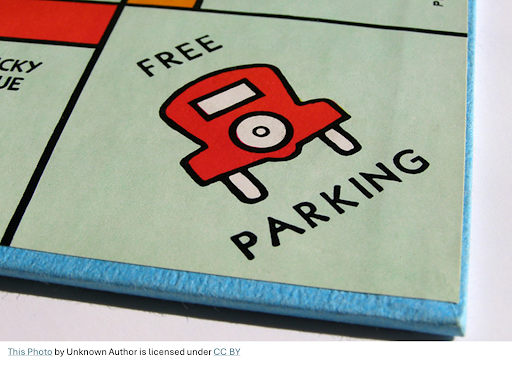The 2020 election has a force at work besides foreign influence that may change its outcome: conspiracy theories.
A conspiracy theory is “the idea that many important political events or economic and social trends are the products of deceptive plots that are largely unknown to the general public.” The idea that the moon landing was fake, the Flat Earth theory and the belief that Denver International Airport (DIA) houses a secret base for the lizard-people of the Illuminati are some popular conspiracy theories that follow this definition.
Conspiracy theories like these are hardly given serious consideration by many. But today, there are theories to do with politics that are being pushed into the spotlight by politicians.
President Donald Trump and his followers are one example. Many people within his base are outspoken about birtherism, the false and racist belief that former President Barack Obama was born in Kenya and not Hawaii. Trump became well-known for heavily pushing this theory, even after two forms of Obama’s birth certificate were published. In 2016, he gave a lackluster apology and put blame on Hillary Clinton for saying the conspiracy first in the same speech.
Then, there is the QAnon conspiracy that began to spread in November of 2017. “Q” is a moniker used by an anonymous social media user or group of users who say they are placed at a high level in the government and have security clearance.
Q’s posts range in topic, but most rail about the “Deep State”—a conspiracy theory that career officials in the government are actively working against the president by leaking information or not implementing certain policies. At Trump’s rallies, his supporters wear memorabilia in support of Q. Trump has retweeted posts from the user’s followers.
Q has also posted speculation about an alleged child sex-trafficking ring run by elites such as Hillary Clinton. In one such theory, Pizzagate, it is believed that Democrats ran a sex ring out of the basement of a Washington D.C. pizza shop. On Dec. 4, 2016, a North Carolina man who believed in the theory went so far as to walk into the pizza shop armed with the intent of breaking up said non-existent ring.
Trump and other members of Congress, such as Senators Ted Cruz and John Kennedy, have also pushed conspiracy theories regarding Ukraine and the events that lead to the impeachment proceedings. These Republicans believe there was Ukrainian interference in the 2016 elections to help Clinton, DNC servers were hidden in Ukraine by the cybersecurity firm Crowdstrike and that former Vice President Joe Biden protected his son from being prosecuted by Ukraine.
Even when experts and documents have disproven these theories, Republicans still push that their beliefs are correct. In Trump’s case, he has said he believes the whistleblower who started the impeachment investigations is part of the “Deep State” and had help from Chair of the House Intelligence Committee, Rep. Adam Schiff, in preparing their whistleblower report.
With social media, finding access to these theories and who believes them is easy. They start on sites such as 8chan and 4chan where users are anonymous. In a hearing with Congress, 8chan’s owner stated that anything can be posted on the platform as long as it is legal under U.S. law. These sites have little to no moderation.
Conspiracy theories are effective because of how vague and non-specific they are. These theories can be used to explain any narrative people want them to fit. For instance, with Pizzagate, the theory only stated that elites run the ring. It did not name specific people, yet Hillary Clinton was the main target of these claims.
These conspiracy theories justify the beliefs people already have. Many Trump supporters already thought that Democrats are trying to hurt the country, so when theories such as “Q” surfaced, the Trump supporters felt like their suspicions were being confirmed. Through conspiracy theories, supporters can also bond with others who align with their viewpoints. As more people join the community, the more united the base becomes and the harder it is to break through to them and prove the theory is false.
Conspiracy theories such as these are born from distrust. While they can be seen as merely partisan, conspiracy theories take it to the extreme. A normal voter is partisan when they do not like any views of the other party—but conspiracy theorists seek to destroy the other side by making dangerous claims without evidence. Conspiracy theories will only become more prominent as we get closer to the election, and they have the potential to damage it more than any factor.











